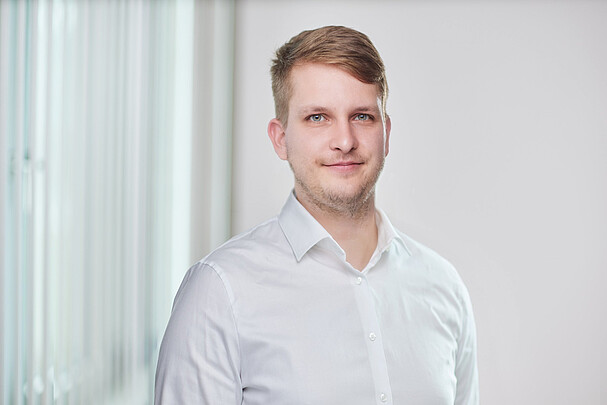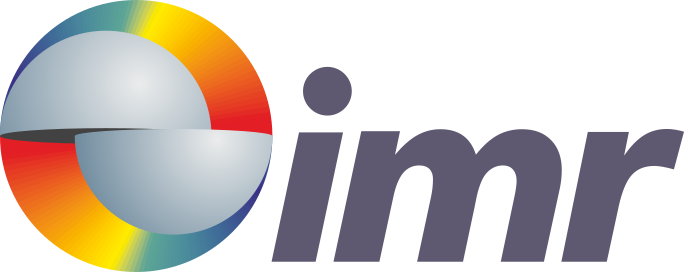Industrial and Medical Imaging
Industrial and medical image processing deals with research and development tasks from the industrial environment as well as with issues relating to image-based measurement technology in medical technology. The main focus in industrial image processing is on the development of new or optimized concepts and methods for optical quality control in production processes with difficult and task-specific boundary conditions. For many years, the working group has been researching the characterization of so-called riblets, a groove-like fine structure of surfaces to reduce air resistance. The task areas are the measurement of the wear and tear of these structures or the large-scale recording of the surface to derive key figures. Various measuring devices are used and also developed in the context of research projects. This includes confocal microscopy, light section technology and also a new type of 3D electron microscopy.
In medical technology, new interaction and control methods are currently being developed to optimize operating room equipment. The aim is to increase efficiency and ergonomics and, in particular, to avoid infections. In the field of microsystems, the focus is on the development and integration of micro-optical and micromechanical components for the further development and optimization of a miniaturized spectrometer (microspectrometer). In addition to improving the process, the goals include reducing energy consumption and equipment costs. This microspectrometer should be used in medical technology, bioanalytics and environmental technology.
Contact Person


Industrial and Medical Imaging
30823 Garbsen


Industrial and Medical Imaging
Industrial and Medical Imaging
-
Model-based Automated Adjustment of Complex Optical SystemsThe use of optical systems is steadily increasing in both industry and among private users. For example, interferometers are used in metrology, lasers in gravitational physics, telescopes in astronomy, and camera lenses for imaging processes. With this growing demand, the requirements and complexity of such systems are also increasing. Particularly, the assembly process of miniaturized and complex optical systems is still predominantly performed manually today and thus significantly depends on the expertise of trained personnel.Led by: Dr.-Ing. Nils MelchertYear: 2020Duration: 01.04.2020 - 01.04.2023
![]()
![]()
-
Smart surgery through AI-based assistance systemsAs part of the research project, a digital OR assistant is to be developed, which will make it possible to relieve the staff in the OR by monitoring instruments and also to acquire data for planning more efficient and hygienically optimized ORs. Multiscale AI-based image processing for object recognition and coordinate regression will be central to the development of the OR assistant, which will make it possible to track relevant objects in the room with cost-effective and easy-to-install cameras and deliver robust results even in the event of occlusions. Central research questions include in particular network conditioning with synthetic data based on detailed virtual 3D environments and the development of network architectures in combination with state estimation methods. The recognition algorithm is used to monitor all tools in use and documents each individual tool in terms of duration of use, type of use, user and movement profile. All this information enables the creation of reliable statistics and the automated preparation of a surgical report, intelligent surgical planning or the design of gripper systems for automated instrument application. The project is funded by the Young Investigator Grands funding line of Leibniz Universität Hannover.Led by: Dr. Ing. Lennart HinzTeam:Year: 2024Funding: Young Investigator Grands LUHDuration: 01.01.2024 - 31.12.2025
![]()
![]()
-
Einrichtassistenzsystem für Transferpressen auf KI-Basis (SPP 2422)The quality of formed components depends on various factors, including process temperature, material and machine properties, as well as tool settings. The initial setup and readjustment of multi-stage tools pose a challenge due to complex interactions, where trained personnel utilize implicit knowledge to stabilize process conditions and ensure the production of defect-free parts. The project aims to utilize AI-based methods to process process data in conjunction with domain-specific knowledge, enabling better modeling of implicit process relationships. This involves generating recommendations for setting up forming processes. In the first phase, experimental conditions are established to develop a multi-stage model for setting up forming processes. AI models identify inherent system interactions and predict geometric quality characteristics.Led by: Dr.-Ing. Lennart HinzTeam:Year: 2024Funding: DFGDuration: 2023-2026
![]()
![]()
-
Cross-scale geometry inspection in mobile manufacturingThe increasing individualization in production is pushing conventional manufacturing methods to their limits. As part of the SCALE research projects, novel scalable and autonomous processes are being investigated. In particular, the mobile machining of components requires precise and, above all, flexible measuring systems to determine different geometric properties of the workpieces as well as their global position during the process steps. Conventional commercial measurement systems based on fringe projection profilometry are often limited in such scenarios by the restricted measurement volume and finite resolution to certain scales. The aim of this research project is to develop an innovative fringe projection profilometry system, where adaptation of the triangulation angle enables location- and scale-adapted measurement to address the multitude of measurement tasks.Led by: Dr.-Ing. Lennart Hinz; PD Dr.-Ing. Dipl.-Phys. Markus KästnerTeam:Year: 2024
![]()
![]()










